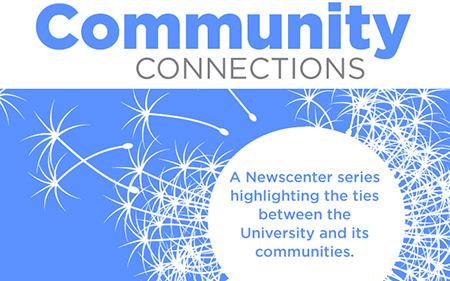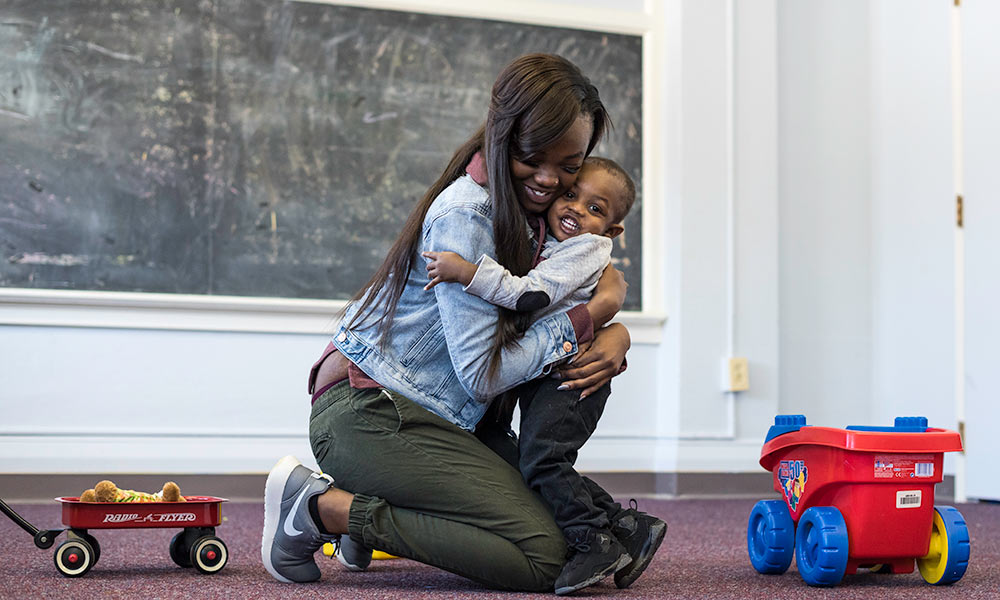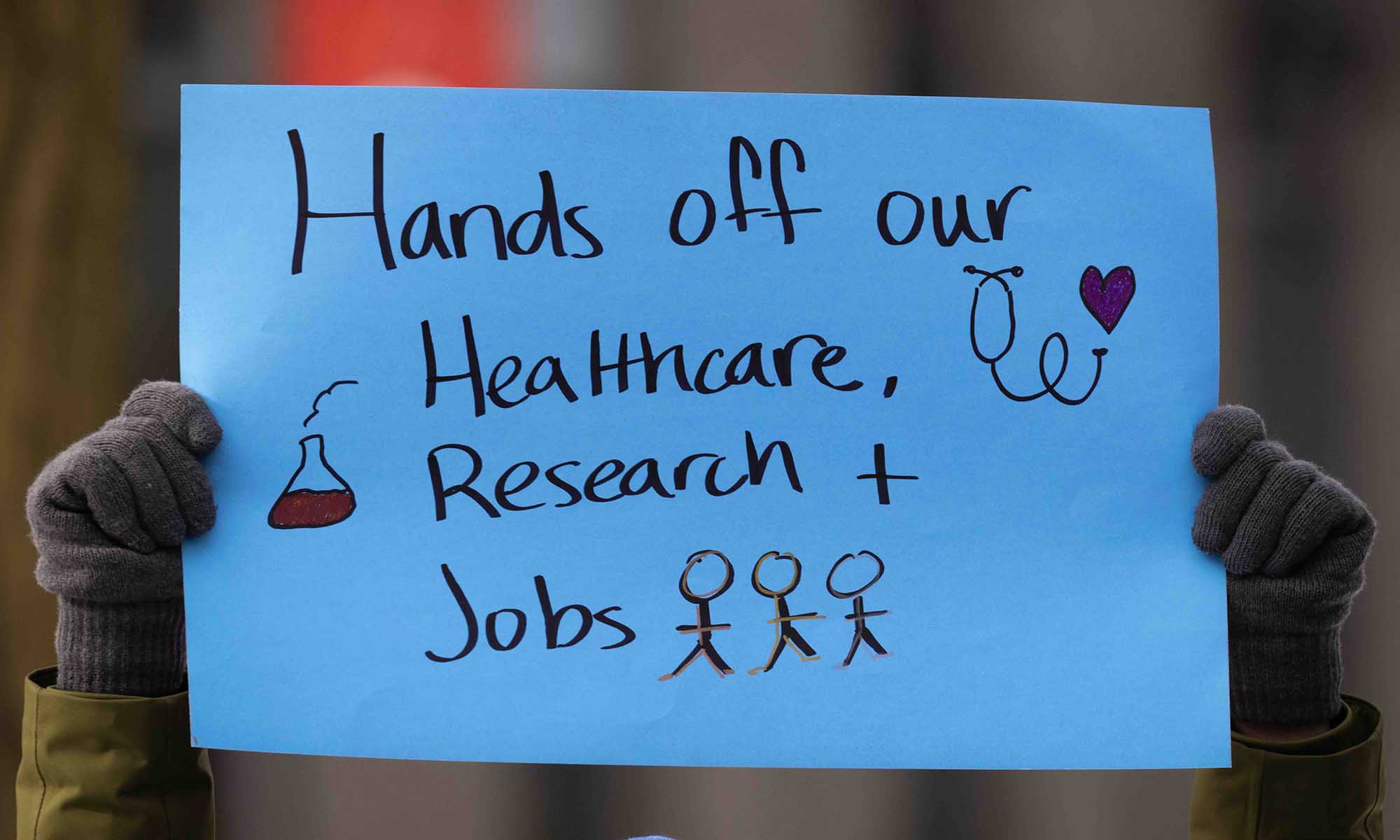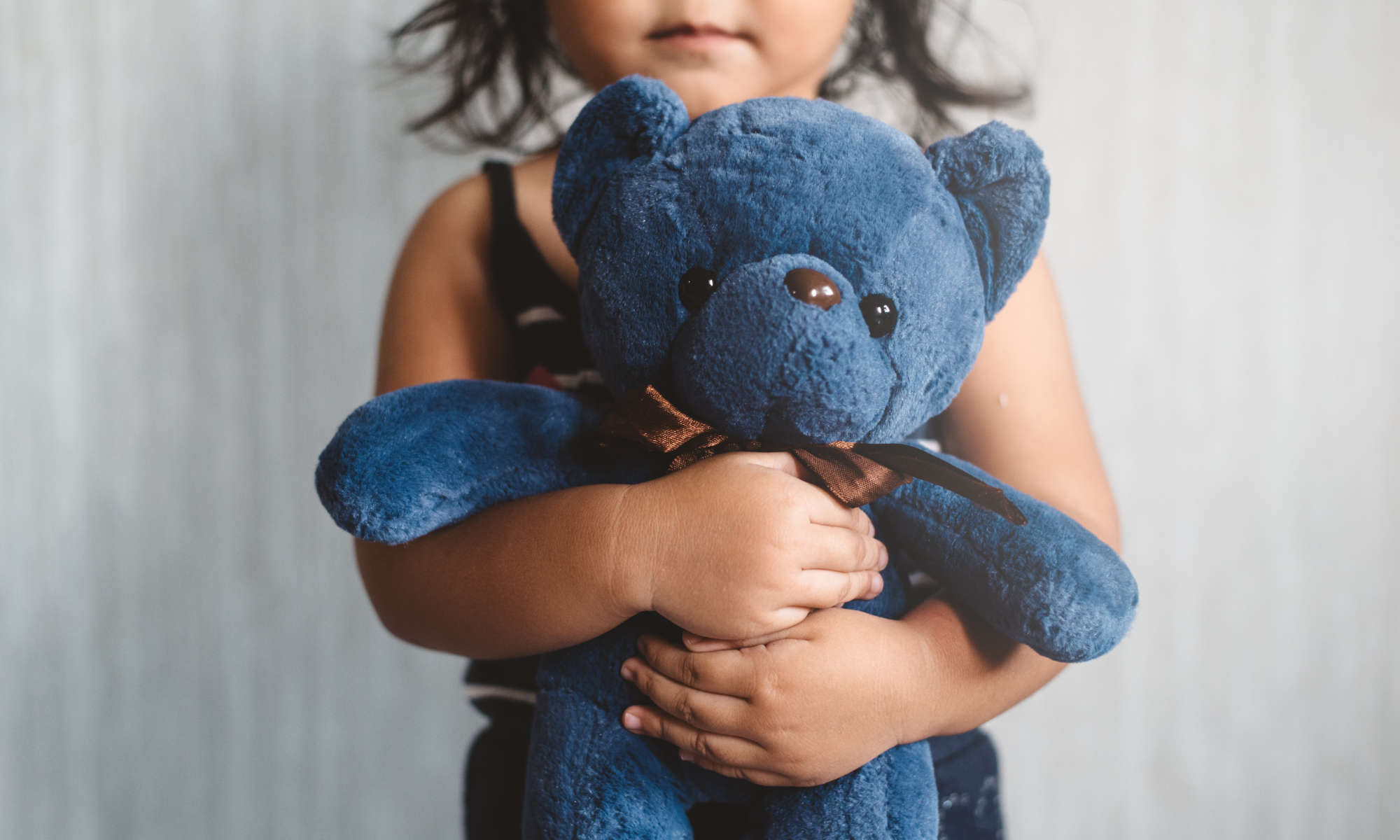The Mt. Hope Family Center sits on a two-way street: its psychologists, researchers, and clinicians have provided evidence-based intervention and prevention services to approximately 1,000 at-risk children and families in the Rochester area annually. Here, too, the center trains and educates the next generation of clinicians and research scientists who conduct vital studies and clinical trials.
The center, which opened in 1979, is affiliated with the University’s Department of Clinical and Social Sciences in Psychology.
“We are unique in that we integrate cutting-edge research with the provision of scientifically supported service,” explains the center’s director Sheree Toth, a professor of psychology and psychiatry.
 The center focuses primarily on a racially and culturally diverse group of low-income families who have been confronted by myriad challenges, including extreme poverty, trauma, and mental illness. To that end, Mt. Hope offers 10 distinct community programs, ranging from child-parent psychotherapy and cognitive behavioral therapy, to the diagnosis, evaluation and support for children (and their caregivers) with fetal alcohol spectrum disorders (FASD).
The center focuses primarily on a racially and culturally diverse group of low-income families who have been confronted by myriad challenges, including extreme poverty, trauma, and mental illness. To that end, Mt. Hope offers 10 distinct community programs, ranging from child-parent psychotherapy and cognitive behavioral therapy, to the diagnosis, evaluation and support for children (and their caregivers) with fetal alcohol spectrum disorders (FASD).
Rochester city resident Laianna Baker came to Mt. Hope for interpersonal psychotherapy when some mornings she could barely make it out of bed. Feeling depressed and lonely, the now 21-year-old single mother found performing everyday tasks to be hard, especially taking care of her newborn son.
“How do I start my day? Nobody was there for me,” Baker remembers.
But she wasn’t the only one suffering. “When I’m sad, not in my element, he feels it,” says the mother of now two-year-old Corey. “He’s more agitated, he keeps falling down to the ground, he whines and cries more.”
Interpersonal psychotherapy at Mt. Hope helped her to learn how to cope, and to look for something to lift her up.
“When I feel low, I play with my kid, watch movies—just do things that clear the stress that I have,” Baker says. Sometimes, she wrestles with Corey on the ground. He loves it. She feels better.
Scientific research backs her up.
A study published in Development and Psychopathology, conducted jointly by researchers at Mt. Hope and the University of Minnesota Institute of Child Development, concluded that mothers who receive interpersonal psychotherapy after showing signs of major depression fare significantly better than the control group, which was merely given community referrals. And, as Baker found, the children benefited, too. Not only did the mothers become better parents—their children improved across a host of important developmental measures.
“It’s a cascading effect for the family,” says lead researcher Elizabeth Handley, research associate and an assistant professor at the center.
Alleviating the mothers’ depression, researchers discovered, meant improved attachment security for their toddlers. Overall, the researchers found that, post-treatment, the mothers in the study became better at reading and understanding their toddlers’ temperaments, leading their toddlers to become less fussy and angry, and therefore, easier to parent.
An additional program, Building Healthy Children (BHC), offers a constellation of services to young mothers in need. Funded by the United Way of Greater Rochester and the Monroe County Department of Human Services, it arose 10 years ago out of concern over the rising rates of child abuse and neglect in Monroe County. Both entities turned to Mt. Hope, as well as social workers and pediatricians at the Medical Center, to come up with a program to assist young mothers in raising children who are both physically and emotionally healthy.
Based on family interest, a pair of support providers help the mothers find transportation, safe housing, and employment, and meet educational goals. Providers also offer information on parenting and child development, parent-child relationships, and counseling services. The program can accept up to 130 families a year.
A formal evaluation of BHC shows promising results. Assessed against a comparison group of young, single mothers, those who completed the BHC program report more confidence in their parenting skills and show fewer signs of depression, according to project director Robin Sturm. “And it’s not just the moms who are doing better,” she says. “Their children are less anxious and show fewer behavior problems.”
More recently, Mt. Hope has turned its attention toward families affected by fetal alcohol spectrum disorders (FASD). In 2014, Mt. Hope and the Department of Developmental and Behavioral Pediatrics at the University of Rochester Medical Center partnered to create a diagnostic clinic for children suspected of having FASD. The disorders, caused by alcohol ingestion during pregnancy, affect about 2 to 5 percent of the population.
“Many people just don’t realize how prevalent it is,” says Christie Petrenko, a research associate at Mt. Hope, an assistant professor in psychology, and a recognized expert on FASD. Petrenko has conducted multiple studies that have resulted in an evidence-based program of interventions for parents and caregivers of children with the disorder. Most recently, she embarked on a new challenge—getting sound medical information and support to the people who need it most.
“Many families have little to no access to the kinds of information and parenting strategies that are most helpful in managing the behavior of children with FASD,” Petrenko says. “They need support from others who understand their experiences.”
This summer, Petrenko got some exciting news: she and her colleague Cristiano Tapparello, a research associate in the University’s Department of Electrical and Computer Engineering, were awarded a $1.5 million grant from the National Institutes of Health to support their work to develop a mobile app to provide health information for self-directed and peer-to-peer interventions for parents and caregivers of children with FASD.
Toth says she’s proud of the staff who are “passionately committed to contributing to the welfare of vulnerable children and families. Regardless of one’s actual position within the Center, everyone is dedicated to the overall mission.”
For the recipients of the services, there’s often also a direct economic benefit. Having dealt with trauma and depression successfully, or having learned ways to mitigate the effects of fetal alcohol exposure, can clear a path back to school, or, for the first time, make it possible to successfully hold down a job.
“The long-term impact of helping mothers become self-sufficient contributes to the well-being of their children, the community more broadly, and to future generations,” says Toth.





